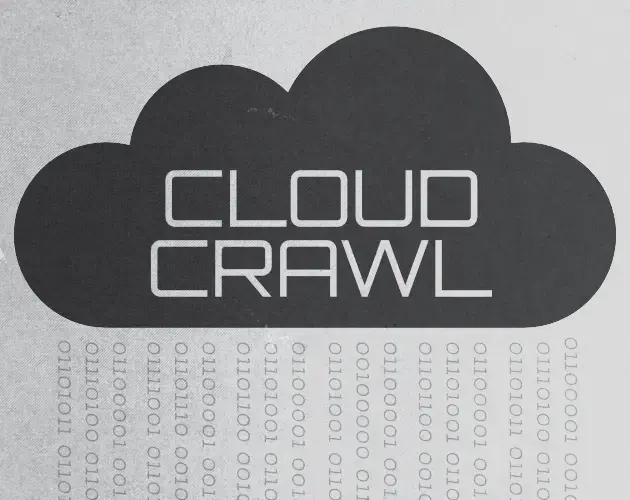Photonics Engineer by day, indie RPG writer by night, especially interested in open/CC games.
See my stuff here: http://awkwardturtle.games
- 5 Posts
- 17 Comments

 4·2 years ago
4·2 years agoOoo, fantastic. I’ve been doing sugar extractions of lemon zest for a mead recently, and we tried drying and blitzing the zests after filtering.
For us the powder was nice (partly because it got a bit candied during the process) but fairly mild in taste. I think it could still absolutely be fun to use to sprinkle on desserts of drinks, for visuals if nothing else.
 3·2 years ago
3·2 years agoAlso if you use The Estate box set you have a nice, episodic little campaign pre-built for Mausritter. It’s a small hex crawl with a bunch of pamphlet adventures scattered around them, complete with hooks to tie them all together.
Might be a good ongoing structure, especially if you have an inconsistent group, or intend to be swapping GMs periodically.

 2·2 years ago
2·2 years agoOur kettle actually partially died a few months ago, had a long debate about what we should replace it with before I realized the contacts on the base had just gotten bent out of place.
A buddy of mine printed the robot mittens for me, and even managed to track down a paint that nearly perfectly matches the color. I absolutely love them. How do you like the metal ones?

 2·2 years ago
2·2 years agoNice! A surprising amount of overlap with out own coffee station!


 7·2 years ago
7·2 years agoFrom my understanding espresso beans do tend to be roasted darker to help increase extraction. I know that at least for my manual espresso press I need to use a significantly different recipe to get a nice shot out of light roasted beans.
Broadly though, I do think the cultural idea of espresso is that it’s a small, super intense cup of coffee which in turn implies it being very bitter as that’s the main coffee flavor people can imagine being intensified. Especially when you consider that a lot of people’s idea of espresso likely comes from pod machines which, in my experience, tend to make very bitter shots.
I was genuinely shocked the first time I had a shot of a espresso from an actual coffee shop and the predominant flavor was sour not bitter.
So, yeah, I do think it’s very common for people to associate espresso with dark and bitter coffee.> I said it sounds like you just haven’t had good espresso
Edit: FWIW, if you’re looking to actually talk to someone about all this, lines like, “I said it sounds like you just haven’t had good espresso,” is not a great way to engender a good conversation.

 2·2 years ago
2·2 years agoRather than a specific system or style, I think the important thing is what gets you and your players excited. Pick a genre or theme that you are your players are into, then find a system that matches that. Once you get into it a bit more you can start digging into different styles of RPGs because you’ll have more context for what it all means and some idea of what you all like.
I like rules light systems because they’ve got a shorter “time to table”, but if everyone is very excited to play DnD, then DnD works because it’ll keep everyone motivated and engaged.
Some ideas:
Sci fi horror game along the lines of Alien: Mothership
Hardscrabble, fools forced to delve into dangerous dungeons and weird woods to make a living: Cairn
Grannies solving murder mysteries a la Miss Marple: Brindlewood Bay
A gang of thieves in a Dishonored-esque whale oil powered city: Blades in the Dark.
A gang of thieves flying a space ship in a star wars or firefly styled galaxy: Scum and Villainy
A doomed world undergoing heavy metal apocalypses: MÖRK BORG, or CY_BORG for the cyberpunk version of that.
Buffy and friends taking down vampire threats, or Mulder trying to find the truth that’s out there: Monster of the Week
Personally I’ve had really good luck introducing new players with Mausritter. The physical version is gives people a tactile card based inventory, the digital version is totally free. It’s super easy for people to get into the head space of tiny mice! There are also tons of fantastic modules to run which makes your job as a DM a lot easier.
This comment got a bit away from me, but I’ve run and played a ton of different systems, so if you have some idea of what you think you and your players will be into I can maybe point you in a more specific direction.

 2·2 years ago
2·2 years agoMausritter is also great at getting people into the “old school” adventuring mindset. It’s easy for people to get that they’re a tiny moues, so they need to be careful, be clever, and run away from dangerous situations.
Plus it’s got fantastic first and third party adventures to run.
Might not be sufficiently fantasy magic for the brief though?

 1·2 years ago
1·2 years agoPepcorn is actually and unironically very good.

 4·2 years ago
4·2 years agoI played Earth for the second time Sunday night (after my usual RPG night was cancelled/postponed), this time with 4 rather than my first game with 2.
It’s a really interesting game, but I’m not entirely sure how I feel about it yet. I originally took a look because it kept coming up in discussions around Ark Nova (which I tried and disliked), Wingspan, Terraforming Mars, etc.
I can see why people say Ark Nova is a bad comparison (I agree, very little overlap) but absolutely see why people compare it to Wingspan so often. So many of the mechanics in Earth seem to be directly pulled from Wingspan and then vaguely re-themed to be plant based. It really feels like they started with Wingspan as a base design, and then reworked it into their own concept.
Pros:
- Simultaneous/shared turns a la Race for the Galaxy work super well in a wingspan-like game. Getting to run your engine on other people’s turns is so much nicer than sitting and waiting for them to deliberate over choices.
- The flexibility of getting to build your own tableau with almost no limitations is a lot of fun, as opposed to building off of an existing engine framework.
- The shared turns have made it (so far) such that I never felt like I was truly pinched for resources. I wasn’t taking actions out of desperation to catch up, I was picking what I felt would get me closer to my actual goals.
- Despite the singleton deck, it never felt like I was unable to find cards with the synergies or qualities I needed.
- There were a good number of high payoff “build around” cards that came up, which is something I always enjoy in a board game.
Cons:
- The iconography could use some work, especially considering how heavily the game relies on it. I mean, the “cold climate” symbol is a five pointed snowflake?! The object that is famously six sided?! I understand having a learning curve, but having a player ask, “what the hell does this symbol mean?” and hour into a game isn’t great.
- Flavor is tenuous, in Wingspan I get that predators hunt smaller birds, that birds which lay lots of eggs and store lots of eggs, etc. In Earth, I have no idea why a given plant has 5 sprouts but only 2 growth, or another one has 2 sprouts and 4 growth. The event cards are even more incomprehensible.
- It’s got a bit of the “egg rush” end game from Wingspan (sprout rush here) but it’s mitigated by shared actions, and having more flexibility in how you build things up (this could have also been placed in Pros, tbh).
- I would never ever want to play this in person. So many fiddly bits interacting that I’m happy to allow BGA to handle for me. Especially considering the scoring, which (again) mirrors Wingspan but has significantly higher totals and would presumably take proportionally longer to count up.
- I understand why a game like this uses photos as card art, but I do really wish they had nice Wingspan-like illustrations instead.
Overall, very interesting game. I had fun, and I’m looking forwarding to digging into it more on future plays.

 1·2 years ago
1·2 years agoThe GM section at the end of Electric Bastionland is, for my money, the single best collection of GMing advice you can get a hold of.
Most of it (maybe all?) is also free on Chris McDowell’s blog but having it curated and in print is great.
My favorite, and most played game is absolutely Arboretum.
It plays quick, it’s small enough to stash in a bag, it’s easy to teach, and it feels like it has endless play and variation. The game also lets me do one of my favorite things in a board game, which is let me go for high risk high reward “shoot the moon” strategies. Absolutely lovely bit of tension and backstabbing fun, but concentrated all into the reveals right at the end so it doesn’t drag the entire experience. Great at every player count, especially at 2 players which is important given that most of my board gaming is just with my wife.
Plus you get to look at lovely art of trees while you playing (with the original edition at least, the newer one has worse art IMHO).
That’s a fair concern, although it sorta sounds like you’re currently in a position where both shy and bold players aren’t interacting with the system, so maybe getting just one group in is an improvement? Haha.
If you want a sort of radically different approach to the same idea, take a look at how Burning Wheel does it. There’s a Circles stat that characters have, and you roll it like you would any other check to try and declare you know someone useful. A failure likely means they exist but they hate you (or similar), so there’s a built in check against using it constantly.
Yes, it’s all up on github, although it was private until just a moment ago because I barely know how to use the website and didn’t realize that was the default.
I have a similar-ish mechanic in Meteor, where you have “Undefined Skills” which you define on the fly. They’re included for some similar reasons as you give, reduces analysis paralysis at character creation, gets the game running faster, and gives player a chance to suddenly declare they’re good at something.
I’ve not really had issues getting players to spend them, but most of my playtests have been in one shots, so I might just be side stepping the hoarding problem. The other potential difference is that I’m usually running high tensions, life or death scenarios, so being able to say, “actually I’m Skilled at this thing” to avoid a difficult roll (or just be able to roll it better) is valuable enough that players will jump on the chance.
As for ideas to make players more likely to use them:
- Most of the benefits are longer term, if you make one, “reveal you’re good at a thing right now,” that might temp players. Or some other immediately impactful option.
- Auto-succeed or large bonus to a roll immediately on spending the point.
- A “use it or lose it” system. You get 1 per session (or 1 per in game unit of time/downtime). They don’t roll over.
- Some combo of the above, pair a short term immediate benefit with a long term addition like it currently does.
- For example, “My cousin Big Joan used to tell me all sorts of stories about hunting Mega-Weasels, that why I know their weak point is just below the jaw.” The player has introduced their cousin, but also gets an immediate bonus to a roll, or reduction in TN (or however you system would handle such a thing).
I have run and played so many different systems, but I’ve really settled on the Into the Odd/Cairn/Electric Bastionland core as my bread and butter. I’ve even got two separate hacks based on that ruleset in the works.
It’s fantastic, for me, because it’s streamlined down to bare minimum functionality, strips out a lot of what annoys me about other RPGs, but provides a stable base for me to build back on top any bits and pieces I miss or a given group of players will enjoy. Small enough that I can fit the entire system in my brain at once, while still sharing enough common language and concepts with more traditional d20 systems that running any random module I pick up is a piece of cake.

 2·2 years ago
2·2 years agoI’m mainly running my own system, Brighter Worlds, which is based on Cairn, Electric Bastionland, and Macchiato Monsters (with plenty of other stuff thrown in). My primary campaign is a big hex crawl in which I have scattered all of the various RPG modules I’ve purchased and want to run, and my players wander around causing problems and knocking down wizard towers (they have a strange vendetta against wizards).
Because I’m still playtesting the system we often pause the campaign for little 1-3 session games to test out new stuff, or to test my other game Meteor my “I want to play Mothership modules but would rather be using ITO/Cairn mechanics” hack.
My other group is much more scattered and we do one shots of various stuff constantly, most recently I ran a CBR+PNK one shot that was a ton of fun.


Yeah, I don’t know if that tracks. Wingspan has sold more than 1.3 million copies (as of September 2021) which is way way way more than the average board game sells.
I’d far more believe that they couldn’t keep up with production than they were intentionally limiting supply.